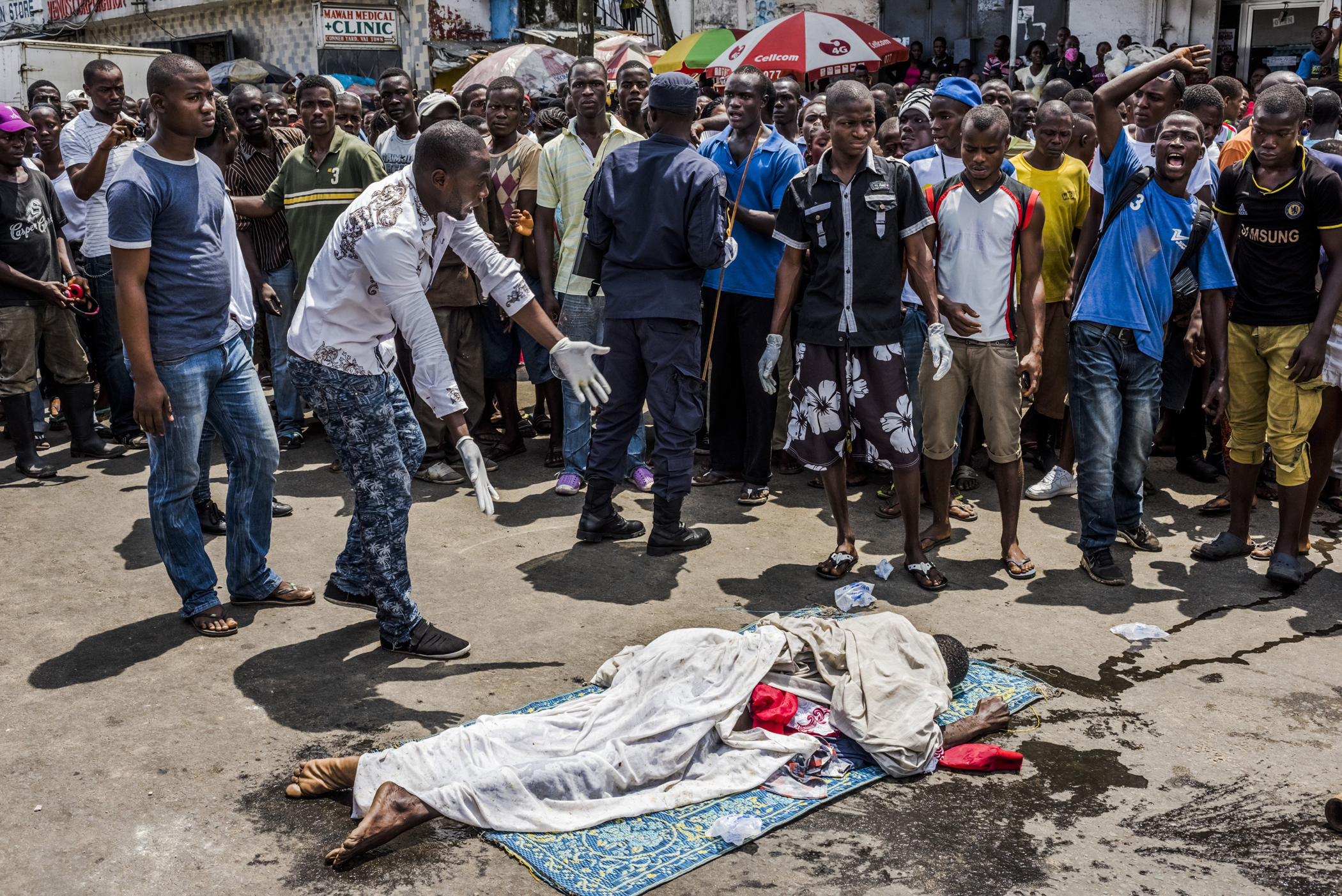
When U.S. President Barack Obama announced a dramatic expansion of American aid and military personnel to help combat Ebola in Liberia on Sept. 16, it wasn’t just because the country was suffering the worst of a devastating outbreak that has claimed nearly 2,500 lives and sickened at least twice as many more in West Africa. Though the rapidly rising death toll—the number of cases in Liberia nearly doubled over the past three weeks—is enough to more than enough to merit international concern, there are also deep historical links between Liberia and the U.S. Liberia is the closest thing America ever had as a colony in Africa, and the two countries share a unique history, strong ties—and a certain responsibility to each other.
Dubbed “Another America” by American historian James Ciment in his recent book on the country, Liberia was founded by American statesmen in 1820 and populated, forcibly by some accounts, with former slaves. According to Ciment’s account, it was an attempt to rid the United States of its burgeoning population of freed blacks, which Kentucky Senator Henry Clay, then speaker of the House, called in 1816 “useless and pernicious, if not dangerous.” It was a kind of “ethnic cleansing” for a country uncomfortable with the idea of slavery yet not prepared to accept blacks as full members of society, Ciment said in a recent interview.
By the the time of the Civil War, Clay’s American Colonization Society, founded with fellow Congressmen John Randolph and Daniel Webster to purchase land in West Africa, had sent more than 10,000 American blacks to the new country, which they called Liberia. They named the capital Monrovia, after James Monroe, who was the U.S. President when the capital was established.
The new immigrants, who came to be known as “Americoes,” set up a society largely modeled on that of the antebellum South, taking local natives as servants, and, eventually, as slaves who could be ‘leased’ out to work on the country’s lucrative rubber plantations. That early legacy of inequality laid the foundations for the revolutionary foment that eventually led to a sequence of brutal civil wars beginning in 1989 that ended only in 2003.
Liberia has only just emerged from the ravages of those conflicts, and its economy, infrastructure and leadership are not yet prepared to take on a crisis as big as the current Ebola outbreak. Sierra Leone, of course, suffers a similar post-conflict situation due to its own recent civil war, but there Ebola is not as widespread.
Still, there has been some grumbling from residents of both Sierra Leone and Guinea, the two other countries most affected by the outbreak, that they are not getting as much American largesse. American officials say that the assitance at the epicenter of the outbreak will help all afflicted countries. But each of those countries is getting additional assistance from former colonial masters as well: France is sending 20 health and medical disaster specialists to Guinea and has donated $200,000 to the French Red Cross’s operations there, in addition to a $1 million grant to the European Union’s humanitarian agency’s work on Ebola in the region. And Britain has announced that it will be sending troops to its former colony, Sierra Leone, to set up a 62-bed facility there. It has also committed $40 million to battle the outbreak region wide.
But even nations with no historical connection to the region are pitching in, not least would-be soft power China, which pledged to dispatch 174 epidemiologists, nurses and doctors to Sierra Leone. Considering China’s huge investments in the region, however, it has been criticized for its paltry economic assistance in the crisis.
The driving issue with all this assistance, is not how much is being offered, but how quickly it can get there. Even America’s proposed treatment wards, about ten of which will be built across the country, only offer enough places for 1,700 Ebola patients. The best solution for stopping Ebola in its tracks is quickly identifying and isolating victims. But 1,700 places for Ebola patients is barely adequate for the number of suspected cases in Liberia at the moment. With numbers doubling every three weeks, the longer it takes to get the treatment wards in place, the more beds—and graves—there will need to be.
More Must-Reads From TIME
- The 100 Most Influential People of 2024
- Coco Gauff Is Playing for Herself Now
- Scenes From Pro-Palestinian Encampments Across U.S. Universities
- 6 Compliments That Land Every Time
- If You're Dating Right Now , You're Brave: Column
- The AI That Could Heal a Divided Internet
- Fallout Is a Brilliant Model for the Future of Video Game Adaptations
- Want Weekly Recs on What to Watch, Read, and More? Sign Up for Worth Your Time
Contact us at letters@time.com